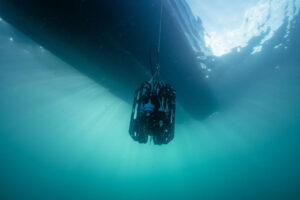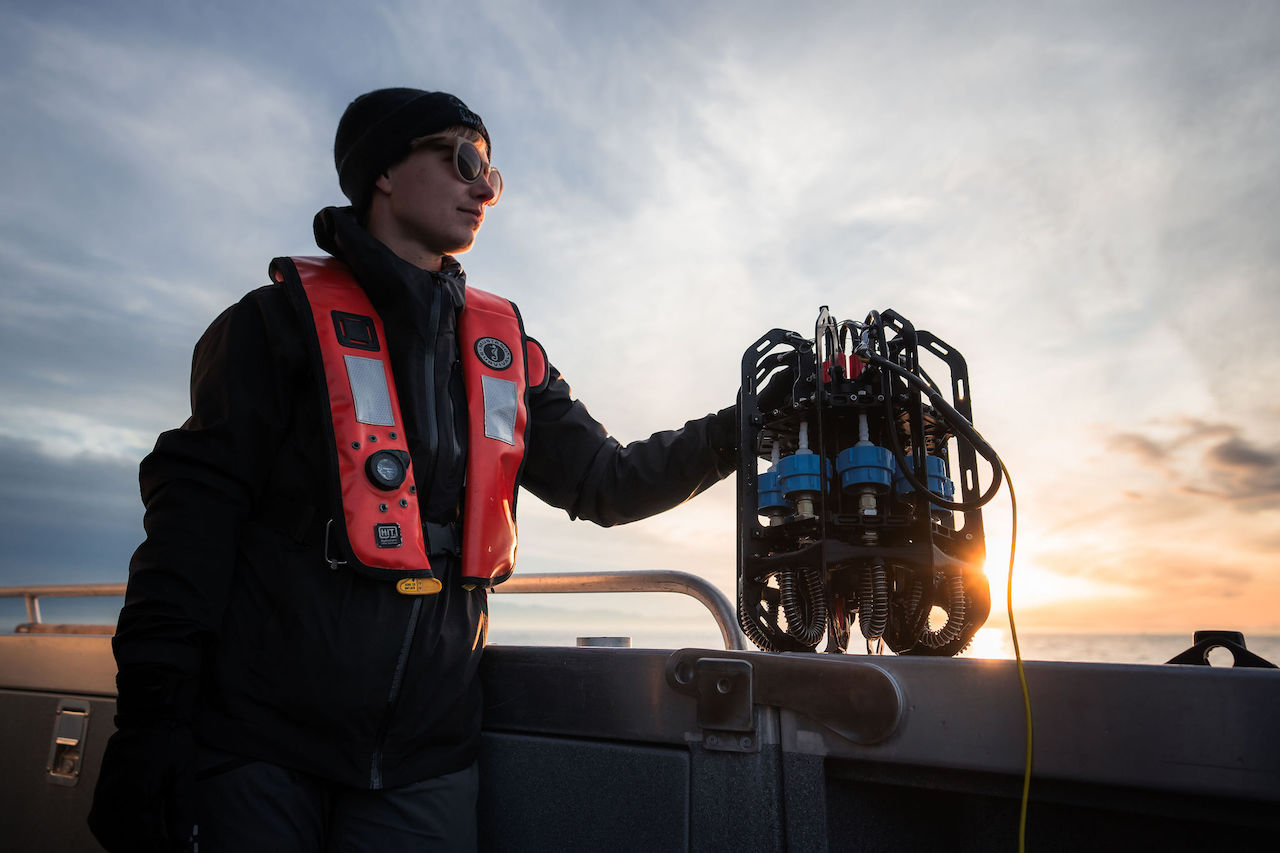Thursday, July 3, 2025
A new Canadian innovation is advancing ocean research capabilities to combat biodiversity loss. Ocean Diagnostics Inc. has released Ascension, a 22-pound (10-kilogram) automated robot to collect environmental DNA (eDNA) samples down to 400-metre depths.
“A global, complex problem like biodiversity loss requires innovative solutions that can easily scale and produce reliable and replicable results. Ascension makes eDNA sampling easy and accessible for researchers, conservationists and community scientists alike,” says Ethan Edson, CEO and co-founder of Ocean Diagnostics, a Canadian environmental company tackling microplastic pollution.
It appears environmental DNA is a lot like human DNA: marine organisms and animals shed DNA as they move through the water that can be picked up on small filters and analyzed in genomics sequencing labs. The eDNA is amplified and matched with growing reference libraries to identify key and at-risk species. Ascension enables researchers to collect important marine species data without disturbing the ecosystems it aims to protect.

Ascension’s advanced pump systems, actuators, and sensors provide real-time data and automation while reducing human error and contamination risks to improve data reliability.
The instrument has a unique modular frame designed for durability—and even resembles the marine organisms it helps protect. Researchers worldwide are already adopting it to monitor large marine mammals, coral reefs and key salmon species.
“By overcoming the barriers of collecting eDNA at depth or hard-to-reach areas of the ocean, Ascension can be used anytime, anywhere to protect and conserve ocean habitats essential to the economy, food security and cultural preservation,” says Edson.
For further information, click here.
Featured image credit: Ocean Diagnostics











